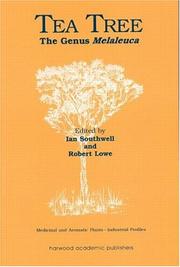| Listing 1 - 10 of 65 | << page >> |
Sort by
|
Book
Year: 1976 Publisher: London: Sweet and Maxwell,
Abstract | Keywords | Export | Availability | Bookmark
 Loading...
Loading...Choose an application
- Reference Manager
- EndNote
- RefWorks (Direct export to RefWorks)
Book
Year: 1973 Publisher: London : Sweet and Maxwell,
Abstract | Keywords | Export | Availability | Bookmark
 Loading...
Loading...Choose an application
- Reference Manager
- EndNote
- RefWorks (Direct export to RefWorks)
Book
Year: 1976 Publisher: London : Sweet and Maxwell,
Abstract | Keywords | Export | Availability | Bookmark
 Loading...
Loading...Choose an application
- Reference Manager
- EndNote
- RefWorks (Direct export to RefWorks)
Book
Year: 1972 Publisher: London Sweet and Maxwell
Abstract | Keywords | Export | Availability | Bookmark
 Loading...
Loading...Choose an application
- Reference Manager
- EndNote
- RefWorks (Direct export to RefWorks)
Book
Year: 1972 Publisher: Harmondsworth Penguin
Abstract | Keywords | Export | Availability | Bookmark
 Loading...
Loading...Choose an application
- Reference Manager
- EndNote
- RefWorks (Direct export to RefWorks)
Book
Year: 1968 Publisher: Harmondsworth Penguin books
Abstract | Keywords | Export | Availability | Bookmark
 Loading...
Loading...Choose an application
- Reference Manager
- EndNote
- RefWorks (Direct export to RefWorks)
Book
ISBN: 0421174803 Year: 1973 Publisher: London : Sweet & Maxwell,
Abstract | Keywords | Export | Availability | Bookmark
 Loading...
Loading...Choose an application
- Reference Manager
- EndNote
- RefWorks (Direct export to RefWorks)

ISBN: 9057024179 Year: 1999 Publisher: Amsterdam Harwood Academic
Abstract | Keywords | Export | Availability | Bookmark
 Loading...
Loading...Choose an application
- Reference Manager
- EndNote
- RefWorks (Direct export to RefWorks)
Melaleuca --- Melaleuca alternifolia --- Myrtaceae --- cultivation --- economic botany --- oil plants --- oils --- toxicology
Book
ISBN: 3030373053 3030373045 Year: 2020 Publisher: Cham : Springer International Publishing : Imprint: Springer,
Abstract | Keywords | Export | Availability | Bookmark
 Loading...
Loading...Choose an application
- Reference Manager
- EndNote
- RefWorks (Direct export to RefWorks)
This book reports on cutting-edge research concerning social practices. Merging perspectives from various disciplines, including philosophy, biology, and cognitive science, it discusses theoretical aspects of social behavior along with models to investigate them, and also presents key case studies. Further, It describes concepts related to habits, routines, and rituals and examines important features of human action, such as intentionality and choice, exploring the influence of specific social practices in different situations. Based on a workshop held in June 2018 at the 6th World Congress of Universal Logic, UNILOG2018, in Vichy, and including additional invited chapters, the book offers fresh insights into the fields of social practice and the cognitive, computational, and philosophical tools to understand them.
Social sciences --- Social philosophy --- Social theory --- Philosophy. --- Logic. --- Social sciences—Philosophy. --- Cognitive psychology. --- Social Philosophy. --- Cognitive Psychology. --- Psychology, Cognitive --- Cognitive science --- Psychology --- Argumentation --- Deduction (Logic) --- Deductive logic --- Dialectic (Logic) --- Logic, Deductive --- Intellect --- Philosophy --- Science --- Reasoning --- Thought and thinking --- Methodology
Book
ISBN: 3030462315 3030462307 Year: 2020 Publisher: Cham : Springer International Publishing : Imprint: Springer,
Abstract | Keywords | Export | Availability | Bookmark
 Loading...
Loading...Choose an application
- Reference Manager
- EndNote
- RefWorks (Direct export to RefWorks)
This book introduces the concept of the ‘native speaker’ frame: a perceptual filter within English Language Teaching (ELT) which views the linguistic and cultural norms and the educational technology of the anglophone West as being normative, while the norms and practices of non-Western countries are viewed as deficient. Based on a rich source of ethnographic data, and employing a frame analysis approach, it investigates the ways in which this ‘native-speaker’ framing influenced the construction and operation of a Japanese university EFL program. While the program appeared to be free of explicit expressions of native-speakerism, such as discrimination against teachers, this study found that the practices of the program were underpinned by implicitly native-speakerist assumptions based on the stereotyping of Japanese students and the Japanese education system. The book provides a new perspective on debates around native-speakerism by examining how the dominant framing of a program may still be influenced by the ideology, even in cases where overt signs of native-speakerism appear to be absent.
English language --- Study and teaching --- Foreign speakers. --- EFL (Language study) --- English as a foreign language --- English as a second language --- English to speakers of other languages --- ESL (Language study) --- ESOL (Language study) --- Teaching English as a second language --- TEFL (Language study) --- TESL (Language study) --- Foreign students --- Language and languages—Study and teaching. --- Educational policy. --- Education and state. --- Learning. --- Instruction. --- Higher education. --- Language Teaching. --- Language Education. --- Educational Policy and Politics. --- Learning & Instruction. --- Higher Education. --- College students --- Higher education --- Postsecondary education --- Universities and colleges --- Learning process --- Comprehension --- Education --- Education policy --- Educational policy --- State and education --- Social policy --- Endowment of research --- Government policy
| Listing 1 - 10 of 65 | << page >> |
Sort by
|

 Search
Search Feedback
Feedback About UniCat
About UniCat  Help
Help News
News